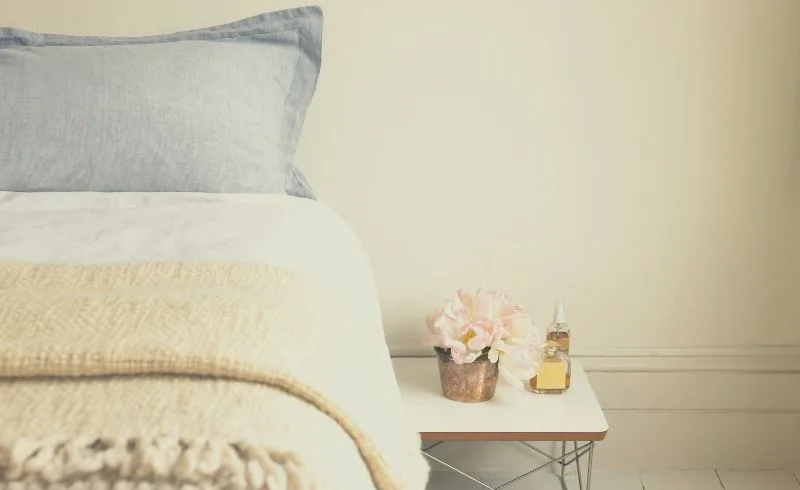There are many things to consider before hiring an Au Pair. Between living with another person and following State Department regulations for the program, it’s a lot to think about.
Here’s a quick run-down of the things you need to know before deciding if Au Pair childcare is right for you.
Understand State Department Regulations Before Hiring an Au Pair

The Au Pair program is meant to give foreign exchange students the opportunity to learn about life in America. All of the State Department regulations support this initiative, while also providing safe living arrangements and a good work environment for Au Pairs.
1. Requirements to become a Host Family
For the U.S. Au Pair program, Host Families must be U.S. citizens or legal permanent residents. They must be fluent in spoken English.
Host Families should be prepared to sign a childcare agreement prior to the Au Pair’s arrival. Families are responsible for upholding the agreement. The State Department and the agency do not manage the placement for you. However, the agency does provide valuable support before and during your Au Pair’s stay.
2. Housing requirements
Host Families must provide their Au Pairs with housing for a minimum of one year. This includes any time the family is away from vacation. A private room with a door is required, preferably with a lock.
A private bathroom isn’t required but is strongly recommended. If the Au Pair has to share a bathroom, they can only share it with the Host Kids, not the parents.
If the placement doesn’t work out for any reason, the family is still required to provide housing while the Au Pair matches with a new family. (This usually takes about two weeks).
Accommodations can be made if the Au Pair or the family no longer want to live together. But the Au Pair is dependent on the family for living arrangements.
3. Providing food & basic necessities
In addition to housing, Host Families are responsible for providing the Au Pair with food and basic necessities. It’s wise to discuss any nutritional needs with your Au Pair before finalizing a match.
Toiletries, towels, closet hangars, and bedding are all things that should be provided for Au Pairs. Access to a washer and dryer is also expected.
For food and toiletries, the basic guideline is that you would provide for an Au Pair the same way you would a visiting family member. The only difference is that your Au Pair will be staying much longer than most family members.
4. Au Pair’s schooling
Au Pairs are required to complete 6 credit hours at an accredited university during their stay. (This means actually sitting in a classroom for a minimum of 72 hours, not taking online classes). Host Families contribute up to $500 toward the Au Pair’s tuition.
In addition to helping pay for tuition, Host Families are required to enable their Au Pairs to attend classes. This means leaving time in your Au Pair’s schedule to attend class, as well as providing a means of transportation.
5. Cultural exposure
Wondering why Au Pairs are required to be physically present in a classroom for at least 72 hours? It has to do with cultural exposure.
The State Department wants Au Pairs to experience life in the USA, and that means interacting with other Americans.
Host Families are also expected to contribute to the Au Pair’s cultural exposure. Though not required, it’s beneficial if you can take your Au Pair with you on family outings whenever possible.
In addition to introducing your Au Pair to your family’s traditions, customs, and way of life, you will also be expected to enable your Au Pair to get out of the house during free time.
6. Hours & vacation time
According to State Department regulations, Au Pairs can work a maximum of 45 hours/ week or 10 hours/ day. So, if you’re gone a minimum of 10 hours a day due to a long commute, you and your partner may need to stagger your schedules so you don’t exceed the maximum allotted hours. Or, you may need to find back-up childcare in case you’re particularly late one day.
If you think that you’d just circumvent the maximum allotted hours by paying your Au Pair overtime, think again.
The State Department prohibits Au Pairs from working overtime or holding another job. Otherwise, they might not have time to truly experience life in the U.S. outside of working. Additionally, Au Pairs are not held to overtime pay requirements (hence being able to work 45 hours/ week for a single pay rate).
Au Pairs must also be given “one complete weekend off each month.” This further supports the Au Pair’s ability to get out, travel, and learn about the U.S.
Families are also required to give their Au Pairs a minimum of 2 weeks’ vacation time each year. If your Au Pair joins you on vacation but watches the kids during that time, it does not count toward vacation time.
7. Au Pair’s stipend
As mentioned above, the Au Pair’s pay rate of does not change, no matter how many hours they work and no matter how many kids they watch.* For parents who need 40-45 hours of childcare each week or who have 2 or more kids, this is fantastic news.
If you don’t need 40-45 hours of childcare, you may want to consider hiring an EduCare Au Pair. These Au Pairs have to take more university courses, and the Host Family contributes up to $1,000 in tuition money.
EduCare Au Pairs can work a maximum of 30 hours/ week or 10 hours/ day. However, the program fees are less for EduCare, and the stipend is just $146.81/ week.
Living with another person

1. What you’re comfortable with in your home
When you’re living with another person, you’ll have the most success when you identify what you’re comfortable with in your home.
For example, if you’re vegetarian or vegan, would you be comfortable living with someone who isn’t? If you’re not a smoker, would you be able to live with someone who smokes?
It’s important to consider things like this before finalizing a match.
2. Sharing common living spaces
Everyone has different preferences when it comes to using shared living spaces in a home. Even if you can offer your Au Pair their own mini-apartment, Au Pairs typically want to become part of your family. Consider whether you would want another person spending time with you now and again, even during off time.
If you have boundaries when it comes to use of the living room, kitchen, dining room, etc., it’s best to identify communicate this well in advance. This will enable you to find an Au Pair who matches your lifestyle and needs.
3. Different tastes in food
Since Au Pairs come from all over the world, this one is pretty much a given. You can try to find people with similar food preferences to you in an interview. However, even within a culture, food preferences can vary widely.
It’s wise to simply expect your Au Pair to have a difference in food preferences from you and your family. This will prepare you and help you stay conscious of ways you can help your Au Pair feel at home.
4. Lifestyle & habits
A person’s lifestyle and habits greatly influence the dynamic in your household. This can range anywhere from cleanliness and being a homebody (or not), to where and how you keep things, music choices, showering, how long it takes you (or your Au Pair) to get ready.
If you’re a forgetful person, this is a good thing to communicate to your Au Pair. This way if you forget something, they know you aren’t just ignoring them.
5. Friends & social life
It’s also a good idea to consider the Au Pair’s desires for a social life and making friends. And to recognize that when a person moves to another country, they’re making a major life change. What they tell you in their interviews may not become their reality after moving into your home.
This is completely normal. It’s not because they lied in their interview, but rather they find themselves changing after starting a new life in the U.S. Anticipating these factors will help you (and them) acclimate to your lives together.
6. Personality differences
Take a moment to think about conflict. How do you handle it when someone does something you don’t like? And how do you react when something you don’t like happens in your home?
Are you super laid-back? Does your home regularly look like a tornado just came through, or like a photo out of Better Homes & Gardens? Or is it somewhere in between?
Do you like alone time in the evenings, or would you love to have someone around who likes to socialize?
Thinking through these aspects of a live-in relationship will help you identify potential issues you might face. This way, you can bring these things up in an interview and find someone who complements your personality.
7. Your motivations for joining the program
Do you see an Au Pair as a convenient solution for your childcare dilemma? If so, that’s okay. It’s true.
But it’s also important to recognize that this is a person you’re welcoming into your home. They fully expect to become part of a family and find a place in your heart–often, for the rest of your lives.
Be prepared for something that’s far more than just a childcare arrangement. This is a person who’s coming to you with their heart open. In most cases, it’s like welcoming an old friend or a distant family member–if you go into it with the right mindset.
Benefits that are hard to find anywhere else

Au Pair childcare offers many unique benefits that are hard to replicate in another childcare environment. Many families say these benefits far outweigh any concerns they had about hosting.
1. Relationship with kids
Few other childcare options offer the opportunity for your provider and your kids to bond as family. Imagine leaving for work every morning knowing that your childcare is the next best thing to grandma and grandpa’s house.
It’s hard to overstate the value of a childcare provider who loves your kids as much as you do!
2. One-on-one care
Not only do Au Pairs have the opportunity to bond closely with your kids and your family. But many families name one-on-one care as one of the best aspects of Au Pair childcare.
Au Pairs can focus on your kids’ individual needs, giving the kind of attention and dedication daycare providers are unable to give.
3. Affordability
Nannies may be able to offer one-on-one care, but they’re often more expensive than daycare. However, families are often surprised to find out how affordable it can be to host an Au Pair.
If you need childcare for more than one child, and depending on the cost of childcare in your state, hosting an Au Pair may be the most affordable option for you.
4.Flexibility & convenience
In addition to the value of affordability and a close familial bond, Au Pairs offer the kind of flexibility that’s hard to achieve with another childcare provider.
Not only do you eliminate daycare and school drop-offs, but because Au Pairs live in your home, you also eliminate the concern that your nanny or babysitter might not show up for work. It’s also much easier to change your schedule with an Au Pair, since they aren’t able to pick up additional work during the program. Au Pairs don’t have as many outside obligations as someone who’s local.
5. Adopting a family member
Not only can Au Pairs offer a familial bond with your kids, but they typically expect to become part of your family. Many Host Families say their Au Pair feels like a long-lost relative.
Families can also become close with the Au Pair’s family members. Parents sometimes exchange photos, videos, and jokes with their Au Pair’s mom and dad. It’s common for families to visit the Au Pair’s hometown, and they often say it feel like they just adopted extra grandparents for their kids.
* Au Pairs may only watch their Host Family’s children. Being asked to watch another family’s children is strictly prohibited, even if it’s for extended family.




